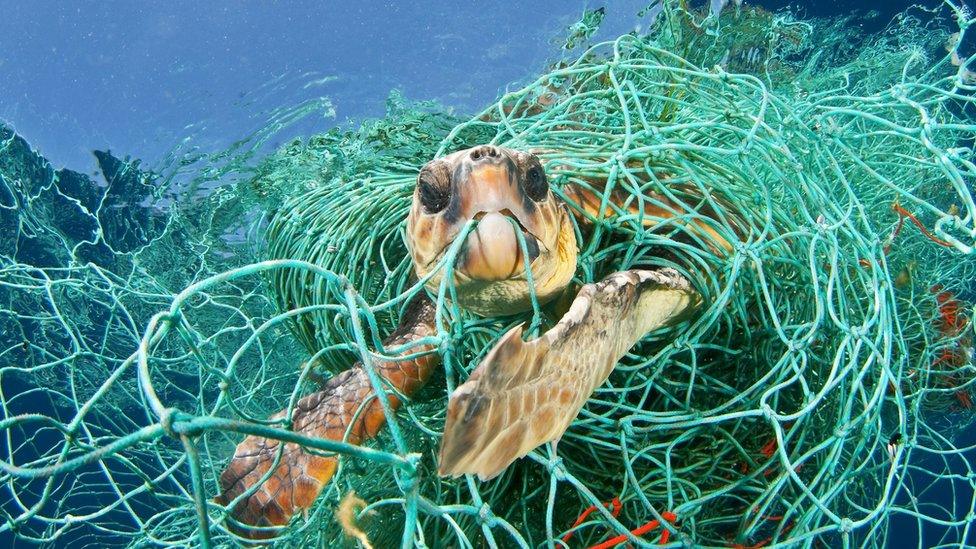Humans are wiping out global wildlife populations warns WWF
- Published
- comments

Photo issued by WWF of a Loggerhead turtle trapped in a net in the Mediterranean Sea
Life on earth is being wiped out because of human activity. That's the warning from conservation group, the World Wildlife Fund (WWF).
It says the global populations of mammals, reptiles, birds and amphibians have fallen by 60% in the last 50 years.
The WWF's Living Planet Report claims increased pollution, deforestation, climate change and farming have created a "mind-blowing" crisis.
The organisation is asking for a new global deal from countries and businesses to tackle wildlife loss.
Tanya Steele, WWF chief executive, said: "We are the first generation to know we are destroying our planet and the last one that can do anything about it."
Global wildlife in danger
African elephant populations in Tanzania have declined by 60% between 2009 and 2014, mainly due to poaching
It's estimated that over 100,000 Bornean orang-utans were lost between 1999 and 2015, largely due to forest loss, separation and illegal hunting for meat and the pet trade
Polar bear numbers are expected to drop by a nearly a third by 2050 - the single greatest threat they face is climate change
The puffin population size in Europe is expected to drop by 50-79% during 2000-2065
The populations of black and white rhinos have declined massively - the illegal wildlife trade is by far the biggest threat currently facing both populations due to the demand for their horns
The WWF says it is likely that the global Whale Shark population has dropped by over 50% over the last 75 years
Hedgehog numbers dropped by 75% in urban UK areas between 2002 and 2014 - it's thought to be the result of loss of habitat, less food for them to eat and vehicle deaths
- Published5 October 2016
- Published11 May 2016
- Published23 May 2018
